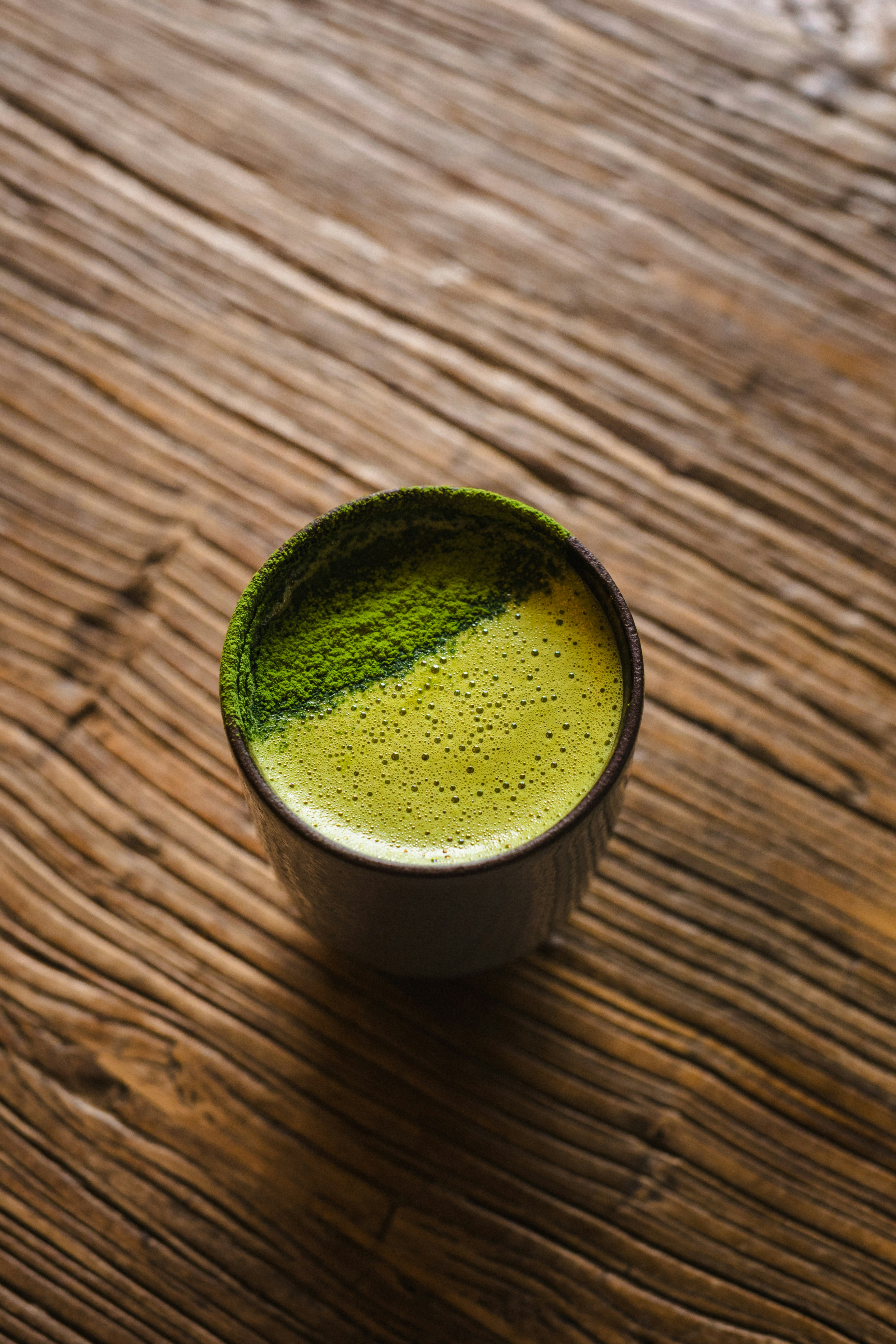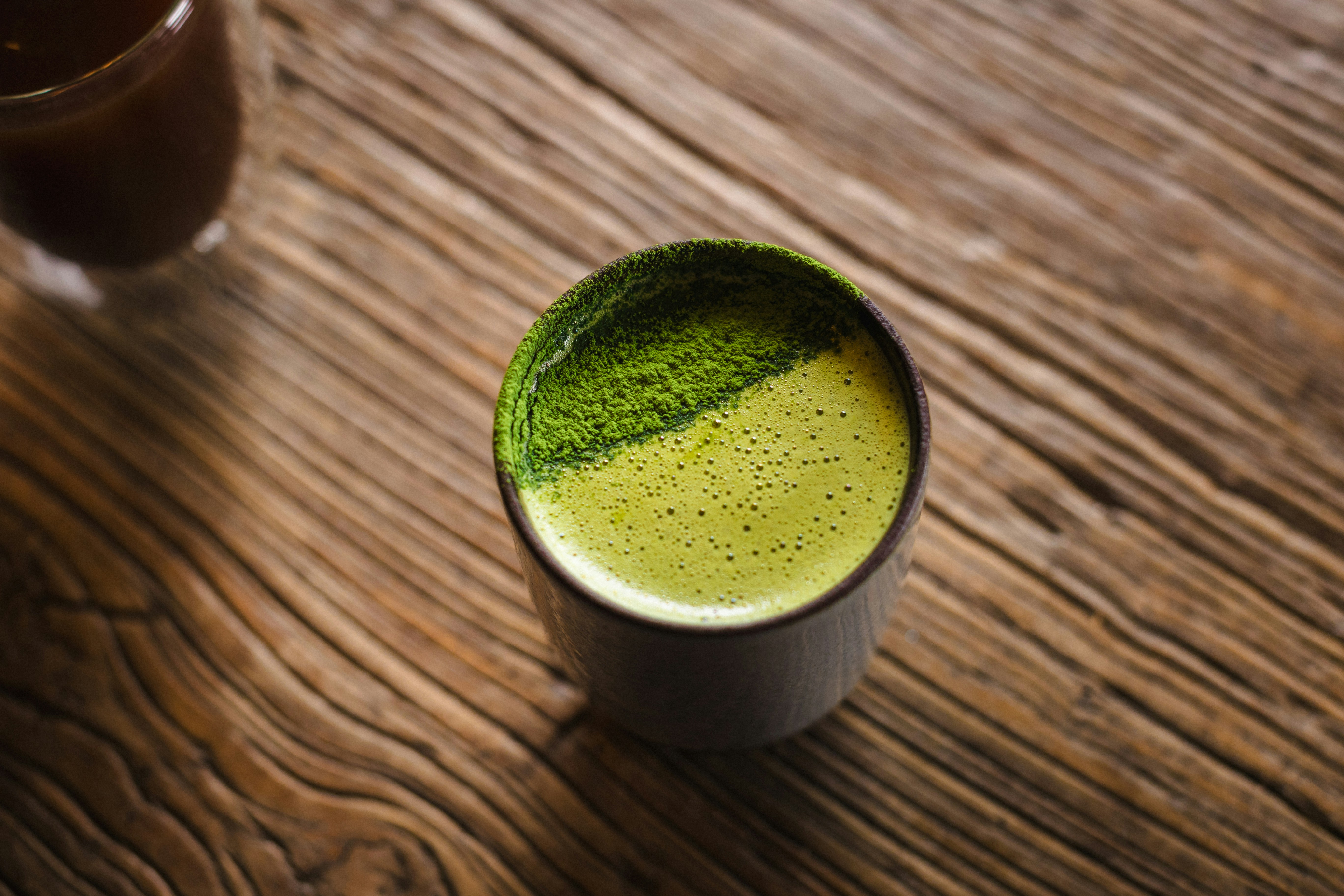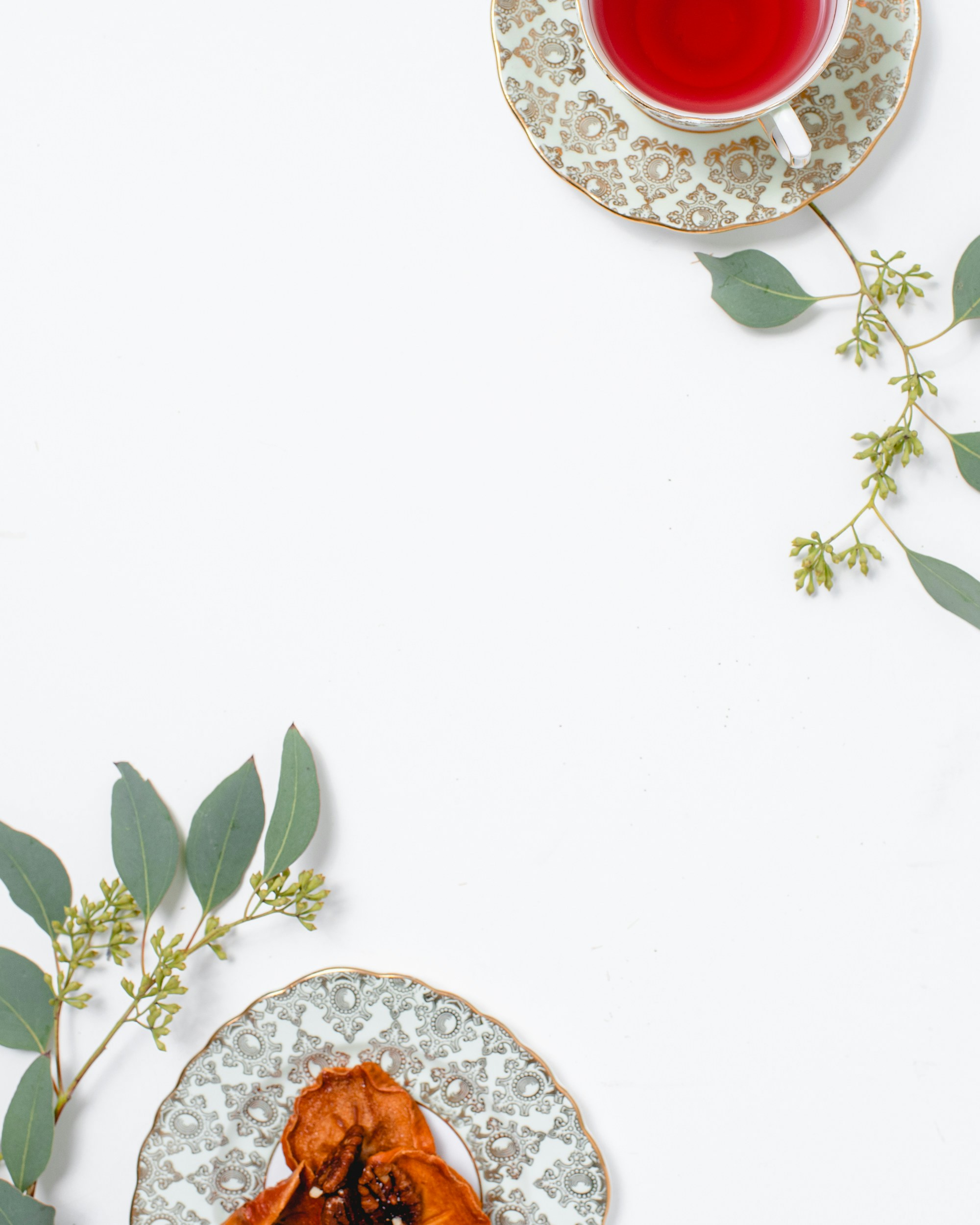Introduction to Matcha: The Green Wonder
Matcha, a vibrant green powder derived from specially grown and processed green tea leaves, has garnered substantial attention in wellness circles worldwide. Originating in Japan during the Tang Dynasty (618–907), matcha was initially used by Zen Buddhist monks to enhance meditation and promote a sense of tranquility. Its significance in Japanese culture is primarily illustrated through traditional tea ceremonies, or “chanoyu,” where matcha is prepared and consumed with great ritual. This ceremonial approach highlights the tea’s importance as more than just a beverage; it represents a moment of reflection and mindfulness.
Unlike regular green tea, which is steeped and discarded, matcha involves consuming the entire leaf in powdered form. This method provides a concentrated source of nutrients, antioxidants, and amino acids, making matcha a powerhouse of health benefits. One of the key distinctions of matcha is its high levels of catechins, particularly epigallocatechin gallate (EGCG), which is acknowledged for its potential role in enhancing metabolic health and providing a natural source of energy without the jitters commonly associated with caffeine. This unique composition allows matcha not only to invigorate the body but also to promote mental clarity and focus.
Moreover, the cultivation of matcha focuses on shade-growing techniques, which increase chlorophyll production and further enhance its nutrient profile. The gathering and grinding process of the leaves adds an additional layer of care, making matcha a premium product in the realm of tea. As a result, incorporating matcha into a wellness routine can yield multifaceted benefits for both mind and body. Thus, understanding the origins and traditional uses of matcha is paramount for anyone seeking to enrich their wellness practices through this green elixir.
The Health Benefits of Matcha
Matcha, a finely powdered form of green tea, has gained considerable attention in recent years, mainly due to its numerous health benefits. Rich in antioxidants, particularly catechins, matcha helps combat oxidative stress in the body. This unique composition of antioxidants not only enhances overall health but also contributes to skin health by promoting a youthful appearance. Research indicates that the potent antioxidants found in matcha may help reduce the risk of chronic diseases and improve well-being.
Additionally, matcha has been linked to an increase in metabolism, making it an excellent addition to any wellness routine. Studies suggest that the consumption of matcha can boost metabolic rate by up to 4%, aiding in weight management and fat loss efforts. The presence of the amino acid L-theanine, which works synergistically with caffeine, allows for sustained energy levels without the jitters often associated with other caffeinated beverages. Many individuals report feeling more focused and alert after consuming matcha, supporting its role as a cognitive enhancer.
Hearts also stand to benefit from matcha’s remarkable properties. Regular consumption has been associated with improved cholesterol levels, thus promoting cardiovascular health. A study published in the American Journal of Clinical Nutrition suggested that participants who consumed green tea exhibited a significant decrease in total cholesterol and low-density lipoprotein (LDL) cholesterol levels. Such findings underscore matcha’s potential in supporting heart health when integrated into a balanced diet.
Furthermore, personal anecdotes from matcha enthusiasts showcase its positive impact on daily routines. Many individuals have shared experiences of improved focus during work or study sessions and enhanced overall wellness. From smoothies to lattes, the versatility of matcha allows it to be seamlessly incorporated into various diets, making it easy for people to embrace this green elixir.
Enhancing Mental Clarity and Focus with Matcha
Matcha has gained significant attention in recent years, particularly within the wellness community, for its potential to boost cognitive functions, improve focus, and enhance overall mental clarity. This vibrant green powder, derived from finely ground green tea leaves, contains a unique combination of compounds that work synergistically to support mental performance. One of the key components responsible for these benefits is L-theanine, an amino acid found abundantly in matcha.
L-theanine promotes relaxation without causing drowsiness, providing a state of calm alertness that is particularly beneficial for those seeking to improve focus during work or study sessions. Unlike the jittery effects often associated with caffeine, matcha delivers a more sustained and balanced energy boost, enabling individuals to maintain their concentration over longer periods. Numerous anecdotal accounts describe personal experiences of heightened productivity and clarity after incorporating matcha into daily routines. For instance, some individuals report that starting their morning with matcha instead of coffee helps them approach their tasks with a clear mind and increased creativity.
Furthermore, the ritual of preparing and consuming matcha can also contribute to its positive effects on mental clarity. Engaging in mindful practices, such as whisking the matcha and savoring its rich flavor, may enhance focus and present-moment awareness, allowing individuals to tune into their tasks more effectively. Moreover, matcha’s natural antioxidants, particularly catechins, have been linked with improved brain health, potentially offering protective effects against cognitive decline.
Incorporating matcha into one’s wellness routine can be an effective strategy to enhance mental clarity and focus. Whether enjoyed as a morning beverage or as an afternoon pick-me-up, matcha serves as a green elixir that not only nourishes the body but also supports cognitive resilience and productivity.
Matcha as a Spiritual Practice
Matcha, a finely ground powder made from specially grown green tea, has deep roots not only in culinary traditions but also in spiritual practices, particularly those associated with mindfulness and meditation. Integrating matcha into a wellness routine transcends its physical benefits; it fosters a connection with oneself, encouraging a mindful approach to daily rituals. The process of preparing and consuming matcha can be transformed into a spiritual practice, creating space for meditation and self-reflection.
The intricate steps involved in preparing matcha—from sifting the powder to whisking it into a frothy beverage—demand attention and presence. This intentional act serves as an anchor for mindfulness, allowing individuals to cultivate awareness of their thoughts, feelings, and surroundings. The act of focusing on the textures and colors of the matcha, as well as the rhythmic movements involved in its preparation, provides a unique opportunity to enter a contemplative state.
As participants savor each sip of matcha, the experience can evoke a sense of calm and presence, facilitating mental clarity and emotional grounding. Embracing matcha as a spiritual practice encourages individuals to create a ritual that honors their inner selves. The vibrant green color of matcha, symbolizing vitality and renewal, serves as a reminder of the interconnectedness of mind, body, and soul, aligning perfectly with the principles of holistic wellness.
Incorporating matcha into meditation practices can deepen mindfulness. Participants often find that the warm beverage promotes a serene environment conducive to introspection. Whether enjoyed alone or shared with others, matcha’s rich history and its present-day applications create a powerful vessel for spiritual exploration and growth. As a green elixir, it bridges the gap between physical nourishment and spiritual fulfillment, making it an essential component of any wellness routine.
Incorporating Matcha into Daily Wellness Routines
Incorporating matcha into your daily wellness routine can be both enjoyable and beneficial. There are numerous ways to integrate this vibrant green elixir into your life, offering versatility that suits various lifestyles and preferences. One of the simplest ways to consume matcha is through a traditional tea preparation. However, if you seek variety, consider incorporating matcha into smoothies. A matcha smoothie can serve as a nutritious breakfast or a refreshing post-workout drink. Combine matcha powder with spinach, bananas, and almond milk for a deliciously energizing blend that provides a boost of antioxidants and energy.
Another enjoyable option is to use matcha in baking. You can add matcha powder to recipes for cookies, cakes, or muffins, imparting not only a beautiful green hue but also its beneficial properties. This creative use transforms standard desserts into wellness treats, appealing to those who crave sweet indulgences without sacrificing their health goals. Furthermore, mixing matcha with yogurt creates a delightful snack, pairing well with granola, fruits, or nuts.
In addition to edible uses, matcha can also enhance your skincare routine. Thanks to its antioxidant-rich profile, incorporating matcha into face masks can provide a soothing and rejuvenating effect. Mixing matcha powder with honey or yogurt provides a natural way to detoxify and nourish the skin, fostering a radiant complexion. This multifunctionality appeals to both dietary and topical applications, making matcha a holistic inclusion in your wellness regimen.
Overall, these strategies demonstrate that integrating matcha into your daily routine can be adaptable and enjoyable. Whether you are a culinary enthusiast or simply seeking healthier lifestyle choices, matcha offers a myriad of possibilities for enhancement. Experimenting with these various methods could lead to discovering your favorite way to embrace the green elixir, ultimately contributing to a more balanced and health-conscious lifestyle.
Matcha and Cultural Rituals
Matcha has long been integral to Japanese culture, embodying deep-rooted traditions and rituals that extend beyond its application as a health beverage. One of the most notable practices is the Japanese tea ceremony, known as Chanoyu, which emphasizes the importance of harmony, respect, purity, and tranquility. This ceremonial approach transforms the act of preparing and consuming matcha into an art form, where each step is meticulously executed to cultivate appreciation and mindfulness.
The tea ceremony is not solely about drinking matcha; it is a deliberate and graceful process that fosters a sense of connection between the host and the guests. Participants are invited to engage with the environment and celebrate simplicity, demonstrating an aesthetic philosophy rooted in Sado, the Way of Tea. For the practitioners, it is not only about the flavors and health benefits of matcha but also about creating a tranquil atmosphere where individuals can bond and reflect. Each bowl of matcha served symbolizes friendship and mutual respect, reinforcing the communal aspect of sharing this green elixir.
Moreover, the ritualistic preparation of matcha promotes mindfulness, encouraging participants to concentrate on each movement and moment. From the whisking of the vibrant green powder to the careful serving of the frothy drink, every aspect is imbued with intentionality. This practice serves as a reminder to embrace the present and appreciate the subtleties of life. By partaking in this calm ritual, individuals can cultivate inner peace, making matcha not just a drink, but a pathway to greater well-being.
Thus, the cultural rituals surrounding matcha elevate it beyond mere sustenance. They invite individuals to experience its richness in a holistic manner that nourishes the mind, body, and soul. Embracing matcha within this context allows us to appreciate its unique heritage and timeless significance.
Dispelling Myths About Matcha
Matcha, often hailed as the ultimate superfood, is surrounded by a multitude of misconceptions that can mislead potential consumers. One common myth is that matcha is a miracle cure for all health ailments. While matcha is indeed a source of numerous benefits owing to its rich antioxidant profile and nutritional content, it is important to clarify that it is not a substitute for a balanced diet or a replacement for medical treatment. Like any other health supplement, matcha should be consumed as part of a comprehensive wellness routine rather than being seen as a singular solution.
Another prevalent misconception is that all matcha is of equal quality. In reality, there are significant distinctions in quality depending on the production method and the grade of the matcha. Culinary grade matcha is suitable for cooking and baking, while ceremonial grade matcha is specifically meant for traditional tea preparation. These variations also impact the flavor, color, and nutritional benefits, so it is essential to select high-quality matcha from reputable sources to fully experience its advantages.
Furthermore, some individuals may believe that matcha contains excessive caffeine compared to regular green tea. In fact, while matcha does have a higher caffeine content due to the consumption of the whole leaf, it is accompanied by L-theanine, an amino acid that promotes a state of calm alertness. This unique combination allows for a more stabilized energy boost without the jitters often associated with other caffeine sources. Understanding this synergy can lead to more informed decisions on matcha consumption.
In summary, it is crucial to approach matcha as a complement to a healthy lifestyle rather than an all-encompassing remedy. It is beneficial to stay informed about its properties and quality variations, ensuring that matcha can be effectively integrated into one’s wellness routine.
Personal Testimonials on the Benefits of Matcha
Throughout the wellness community, numerous individuals have shared transformative experiences attributed to the incorporation of matcha into their daily routines. One testimonial highlights the journey of Sarah, a busy professional who struggled with the afternoon slump common among office workers. After adding matcha to her regimen, she noted a significant improvement in her energy levels and focus, allowing her to maintain productivity throughout the day without the jitters associated with coffee.
Another inspiring account comes from Jason, a fitness enthusiast who discovered matcha while seeking a natural pre-workout supplement. He reported that consuming matcha before his workouts not only enhanced his stamina but also provided a sense of calm, enabling a more effective and enjoyable training session. The L-theanine in matcha has been noted in many experiences for its ability to induce relaxation without drowsiness, making it an ideal option for athletes looking to balance energy with tranquility.
Additionally, Emily, a mother of two, shared how matcha became her afternoon ritual. Amid the chaos of motherhood, she found solace in her matcha latte. This simple act served as a moment of mindfulness, prompting her to embrace self-care amidst her busy schedule. Emily articulated that the vibrant green elixir not only nourished her body but also contributed to her mental well-being, reinforcing the importance of taking a moment for oneself.
These stories illustrate a remarkable theme: matcha is more than just a beverage; it can become a vital part of one’s wellness journey. Its rich history, along with personal narratives, underscores matcha’s potential to provide both physical benefits and emotional sustenance. Through these shared experiences, the life-changing effects of matcha resonate deeply, inviting readers to consider how they, too, can benefit from this remarkable green tea.
Conclusion: Your Wellness Journey with Matcha
Incorporating matcha into your wellness routine can significantly enhance your overall health and well-being. This vibrant green elixir, rich in antioxidants and essential nutrients, serves as a powerful ally in the quest for physical vitality, mental clarity, and emotional balance. The diverse applications of matcha—ranging from traditional tea ceremonies to modern culinary innovations—make it accessible and enjoyable for everyone. By integrating matcha into daily practices, individuals can harness its benefits, which include heightened energy levels, improved focus, and increased metabolism.
As you explore the myriad ways to incorporate matcha into your life, consider experimenting with various recipes, such as matcha smoothies, latte variations, or even savory dishes. Each preparation allows for a unique experience, showcasing matcha’s versatility and rich flavor profile. Additionally, the ritual of preparing matcha can serve as a mindfulness practice, encouraging a deeper connection to the present moment. This further fosters a profound sense of well-being that extends beyond the physical aspect of health.
Furthermore, embracing matcha not only contributes to individual wellness but also aligns with larger mindfulness and wellness trends that promote holistic living. As society increasingly recognizes the importance of mental and emotional health, matcha stands out as a beacon of nourishment that supports well-rounded wellness routines.
In conclusion, whether you are new to matcha or a seasoned enthusiast, there is always more to explore and experience. As you embark on or continue your journey toward wellness, let matcha be your guide—a powerful tool for enhancing your mind, body, and soul. By actively integrating matcha into your daily regimen, you are not just adopting a trend but rather embracing a lifestyle change that nourishes every facet of your existence.








Leave a Reply